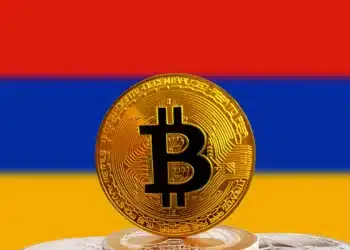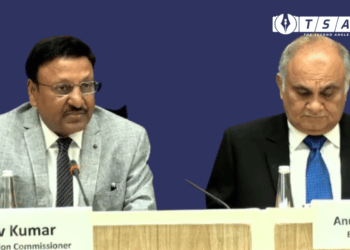Russia is making its way towards Eastern Europe. Its focus is entirely on the countries of Eastern Europe that were once part of Soviet Russia. European Union and NATO countries have spoken out against this expansionism, but have failed to put a stop to it. Ultimately, what was feared unfolded. Russia launched an attack on Ukraine. Conflict continues in Ukraine’s capital, Kyiv, and other places. Missiles, fighter planes, and tanks are raining down on military and residential sectors. Civilians are being martyred alongside the military. Clearly, the situation is dire.
Russia’s actions have also caused tremendous concern among Western countries. That is why Western countries, especially the United States, are avoiding supplying military assistance to Ukraine. Ukraine hoped that by intervening militarily, European countries and the United States would stand with it in this issue. Despite the Russian troops’ attack, the US and its allies have not moved beyond economic sanctions against Russia. This battle could herald a new age of Russia’s expansionist policies. It is reasonable for China to boost its morale in the aftermath of Russia’s attack.
Volodymyr Zelensky, the President of Ukraine, has expressed his grief. He sincerely believed that if Russia launched an attack, America would come out publicly and stand with them. But, so far, Ukraine has been let down by military aid from the United States, the European Union, and the United Kingdom. There are also divisions among EU members over economic sanctions against Russia, as more stringent economic sanctions will harm the interests of both Europe and the United States. Until the very end, France and Germany attempted to solve the problem through discussions with Russia.

Wars and Expansionist Policies of the Nuclear Powered nations
But why are NATO and the United States hesitant to provide military assistance to Ukraine? Some of the reasons for this are obvious. One of the primary reasons is that Germany and France, Europe’s two largest countries, do not want a military conflict with Russia. America, on the other hand, is avoiding military engagement in Ukraine because its own national security interests are not directly involved. The United States has no military presence in Ukraine.
That is why Joe Biden, the US President, is unwilling to engage in a frontal disagreement with Russia. Many prior US presidents, however, acted even in countries where America’s national security interests were not directly threatened. Bill Clinton intervened in Yugoslavia in 1995. Barack Obama engaged directly in the Libyan civil war in 2011. These presidents made the safeguarding of human ideals and human rights the foundation of their actions.
The overall trade exchange between Ukraine and the United States is close to $5 billion, and that’s not much. On the other hand, Biden is under scrutiny from the American people. The American people are opposing a direct conventional war with Russia. Meanwhile, America is currently dealing with issues such as inflation, unemployment, and an economic crisis. As a result, the domestic issues that Biden faces are severe.

Biden’s foreign policy has also undergone some changes. Biden was once an advocate of military action in Iraq and the Balkans. However, they are presently avoiding military engagement in Ukraine. This is also because Biden has learnt a lesson from the way America scorched its hands in Afghanistan. However, Ukraine did not comprehend all of this and chose to face Russia on the basis of America.
Countries such as Taiwan are taken aback by America’s stance in the Russia-Ukraine conflict. Taiwan believes that the strike on Ukraine will enhance Chinese morale as well. China may also send in troops against Taiwan to annex it into China. China is also indirectly supporting Russia’s expansionist ambitions, so if China attacks Taiwan someday, no one will point a finger at them.
Russia’s attack on Ukraine has clearly tested US diplomacy. Many countries that have joined America through treaties are concerned. India would also have to consider how far it is willing to go with the Quad trust in an area like the Indo-Pacific. India’s concern is that Russia has been a reliable ally for a long time. However, during the previous few decades, India has grown closer to the United States. The development of connections between Russia and China is also causing concern in India. At the same time, India’s problems have been exacerbated by Russia’s proximity to Pakistan. Imran Khan recently returned from a trip to Russia. That is why India maintains a neutral stance towards Ukraine. India understands that Russia can be a strong arbiter in the event of a disagreement with China.
The world’s nuclear-powered countries are once again pursuing expansionist strategies. China is continually threatening its Asian neighbours. By using historical examples, it is invading the borders of adjacent countries. Russia, on the other hand, is keen to capture Eastern Europe.
The aggressive stance of Russia towards Ukraine is not quite the same. Under any scenario, it does not want Ukraine to join NATO. If the United States and Western countries are successful in usurping Ukraine to NATO, the road will be open for the deployment of NATO soldiers in Ukraine. This is Russia’s most serious threat. European countries, on the other hand, have promised Russia that Ukraine would not join NATO.
Russia, on the other hand, is sceptical. Putin claims that the US promised in 1990 that NATO would not spread into Eastern Europe, but that the US betrayed that agreement. Several Eastern European countries joined NATO in 1997. Currently, 5,000 NATO soldiers are stationed in the Baltics and Poland. Thus, Russia will no longer stay quiet by invading Ukraine but instead attempt to establish its own puppet regime there.

Following that, Putin’s goal will be the countries that joined NATO in 1997. Russia will also urge NATO to terminate its membership and return to the status quo that existed prior to 1990. If NATO doesn’t agree, Russia will demand that NATO pull its armed forces from these countries. But how can NATO find it easy to agree on this? Eastern Europe will undoubtedly become a new hotspot of global tensions.
Russia, on the other hand, is in a bad situation. On the domestic front, Putin’s critics have begun to speak up. Russians are likewise appalled by the war being fought against Ukraine. Russia’s economy is also not robust enough to resist long-term economic sanctions imposed by countries such as the European Union, the United States, and Canada. But only time will tell how much of an impact these sanctions will have on Russia.
Also Checkout: Ukraine-Russia conflict brings out the issue of selective covering of conflict and humanitarian crisis by media












